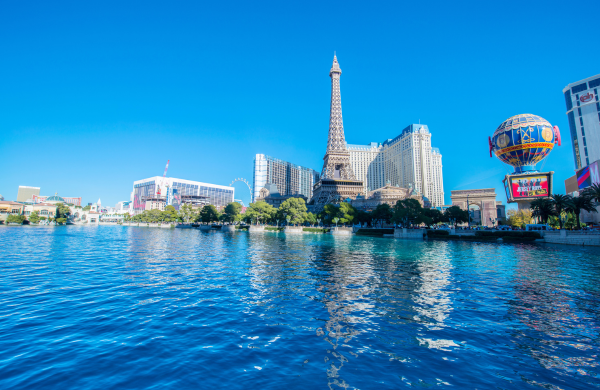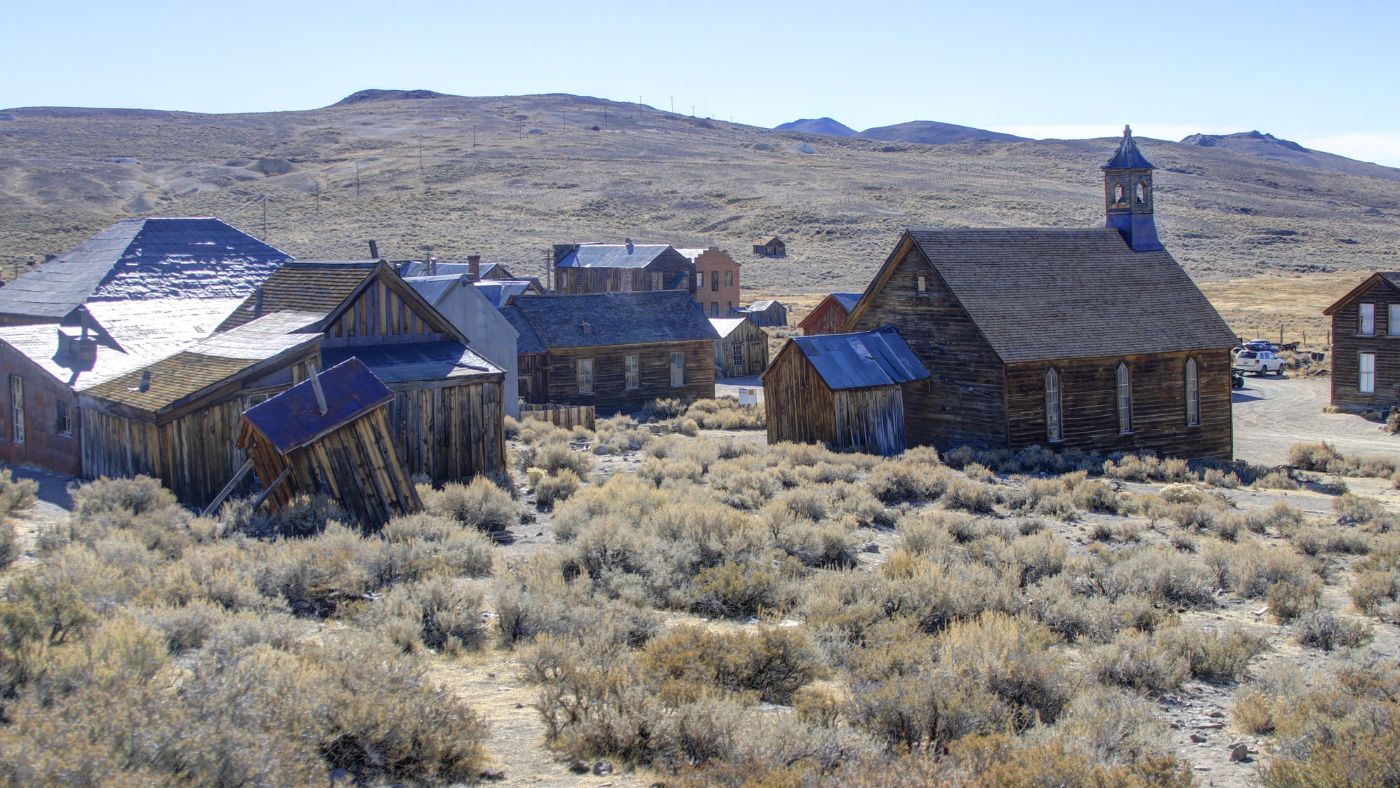Las Vegas Goes Green: A Guide to Sustainable Travel in a City of Excess
Thursday 16th May 2024
Las Vegas is known for its extravagance, from dazzling shows to bustling casinos that run around the clock. But in a city that thrives in the middle of the desert, the high use of water, energy, and other resources really stands out. It’s a place of extreme consumption where every resource is precious.
Despite its reputation for excess, Las Vegas is making strides toward sustainability. From hotels implementing water conservation measures to casinos using energy-efficient technologies, Las Vegas is transforming into a model for sustainable tourism in unexpected ways. This shift not only helps protect the environment but also ensures that the city can continue to thrive for generations to come. Read on to find out how you can help during your visit…
What is Sustainable Tourism?
Sustainable tourism is all about visiting somewhere as a tourist and trying to make a positive impact on the environment, society, and economy. It means planning trips that are not only enjoyable but also careful about not harming natural and cultural environments. This kind of travel is becoming increasingly important because it helps preserve attractions for future generations while benefiting local communities. More and more, travelers and businesses understand the need to balance fun and preservation, making sustainable tourism a growing trend in the travel industry.
What is Las Vegas doing?
The city is incorporating eco-friendly practices in its hotels and casinos, such as water conservation programs, recycling initiatives, and the use of energy-efficient lighting and appliances. Even the famous Strip is getting a green makeover with solar panels and other sustainable energy sources. These efforts help reduce the ecological footprint of the millions of visitors it hosts each year, showing that even a city known for its excesses can lead the way in sustainability.
- The Mandalay Bay Resort and Casino (our Easirent Las Vegas airport rent a car branch is very near to this amazing resort) has installed one of the largest rooftop solar panel systems in the United States, capable of generating enough electricity to power the equivalent of 1,300 homes annually. Additionally, the MGM Resorts International has invested in a massive solar array in Nevada, which provides a significant portion of the electricity needed to power its properties on the Las Vegas Strip.
- Several hotels like the and casinos have implemented water-saving measures, such as low-flow showerheads, efficient laundry systems, and drought-tolerant landscaping. The Bellagio has even replaced its iconic fountains with a more efficient and sustainable system that recycles and reuses the water, reducing water consumption by millions of gallons annually.
- The Wynn Las Vegas has implemented a large-scale recycling program that diverts hundreds of tons of waste from landfills each year. Additionally, some hotels have eliminated the use of plastic straws and have implemented composting programs for food waste.
What can tourists do?
As tourists, there are several practical steps you can take to contribute to sustainable tourism while visiting Las Vegas.
- Choose Eco-Friendly Accommodations – Opt for hotels and resorts that are committed to sustainability. Look for properties with green certifications such as LEED.
- Support Local Businesses – Eat at local restaurants, shop from local artisans, and use local services. This helps ensure that your money benefits the local economy directly and reduces the carbon footprint associated with transporting goods long distances.
- Conserve Resources – Be mindful of your resource usage in the hotel. This can be as simple as turning off lights and electronics when not in use, taking shorter showers, reusing towels, and adjusting the thermostat to a moderate setting.
- Recycle and Dispose of Waste Properly – Make use of recycling bins provided by hotels and public places. Proper disposal of your waste helps reduce pollution and the burden on landfill sites.
- Educate Yourself and Respect Local Culture – Take time to learn about the local customs and cultural heritage. Respecting the local culture includes dressing appropriately, behaving respectfully at cultural sites, and engaging with local traditions thoughtfully.
- Use Water Wisely – Given that Nevada is a desert state, water conservation is crucial. Be conscientious about your water usage — every little bit helps.
Eco-friendly Attractions
Las Vegas offers several eco-friendly attractions that allow visitors to enjoy sustainable tourism while experiencing the unique environment and culture of the area. Here are some noteworthy green attractions in Las Vegas.
- Springs Preserve is dedicated to sustainability, showcasing exhibits on green living and desert life, and it utilizes solar panels and sustainable architecture.
- Bellagio Conservatory & Botanical Gardens changes its elaborate floral displays with the seasons, all created using sustainably sourced plants and flowers. The conservatory uses a sophisticated drip irrigation system to conserve water.
- The High Roller at The LINQ is an observation wheel that provides spectacular views of Las Vegas and uses energy-efficient LED lighting.
- Located between New York-New York and Park MGM, The Park is an outdoor dining and entertainment district featuring drought-tolerant landscaping.
- CityCenter Campus includes multiple properties like Aria, Vdara, and Crystals shopping center, all of which have received LEED Gold certification for their sustainable building practices, including energy efficiency, water conservation, and the use of recycled materials.
- Ethel M Chocolate Factory uses solar power to produce its sweets and the Botanical Cactus Garden showcases drought-resistant cacti and desert plants.
Voluntourism Opportunities
Voluntourism, where travelers engage in volunteer activities as part of their visit, is a growing trend and a fulfilling way to give back to the community. Las Vegas offers several opportunities for tourists to participate in meaningful volunteer work that benefits the local environment and its residents. Here are some voluntourism activities you can engage in while visiting Las Vegas:
- Three Square Food Bank is dedicated to providing food assistance to Southern Nevadans in need. Volunteers can help by sorting and packing food, assisting in the kitchen, or helping out at mobile food distribution events.
- Clean the World collects and recycles soap and shampoo products discarded by the hospitality industry which are then processed and redistributed to impoverished people to prevent disease.
- Get Outdoors Nevada or the Red Rock Canyon Conservancy help maintain and clean up hiking trails and public parks.
- Vegas Roots Community Garden can assist with planting, weeding, and harvesting which not only supports local food production but also promotes green spaces within the city.
Sustainable Travel Tips
Here are our general tips for traveling sustainably across America, not just in Nevada.
- Fly Green – choose non-stop flights as they generally require less fuel than indirect flights. Also, consider airlines that participate in carbon offset programs.
- Shop local – Eat at local restaurants, shop at local markets, and use local services rather than big corporate chains.
- Follow Local Rules – whether it’s signs instructing not to swim in certain waters to protect the natural flora, prohibitions against touching coral reefs, or rules about not feeding wildlife, these regulations are put in place to preserve the ecological balance and protect the environment.
- Respect Wildlife and Nature – keep a safe distance from wildlife and don’t remove or damage anything naturally growing even if others have.
- Spread the Word – raise awareness and share your experiences with others to encourage and promote a more collective effort.
- Reduce, Reuse and Recycle – Minimize waste by avoiding single-use plastics like water bottles and straws. Carry reusable items such as water bottles, shopping bags, and utensils. Always try to recycle whenever possible and ask where the recycling is if one isn’t obvious.
Embracing sustainable travel practices is essential for preserving the world’s precious destinations for future generations while enriching your own travel experience. By choosing eco-friendly transportation, supporting local economies, conserving resources, and respecting local guidelines and natural habitats, you contribute to a global effort to make tourism more sustainable. Remember, every small action counts when it comes to protecting our planet. As you explore diverse cultures and stunning landscapes, let’s all commit to traveling thoughtfully and responsibly, ensuring that the beauty and integrity of our favorite destinations remain intact for years to come.





